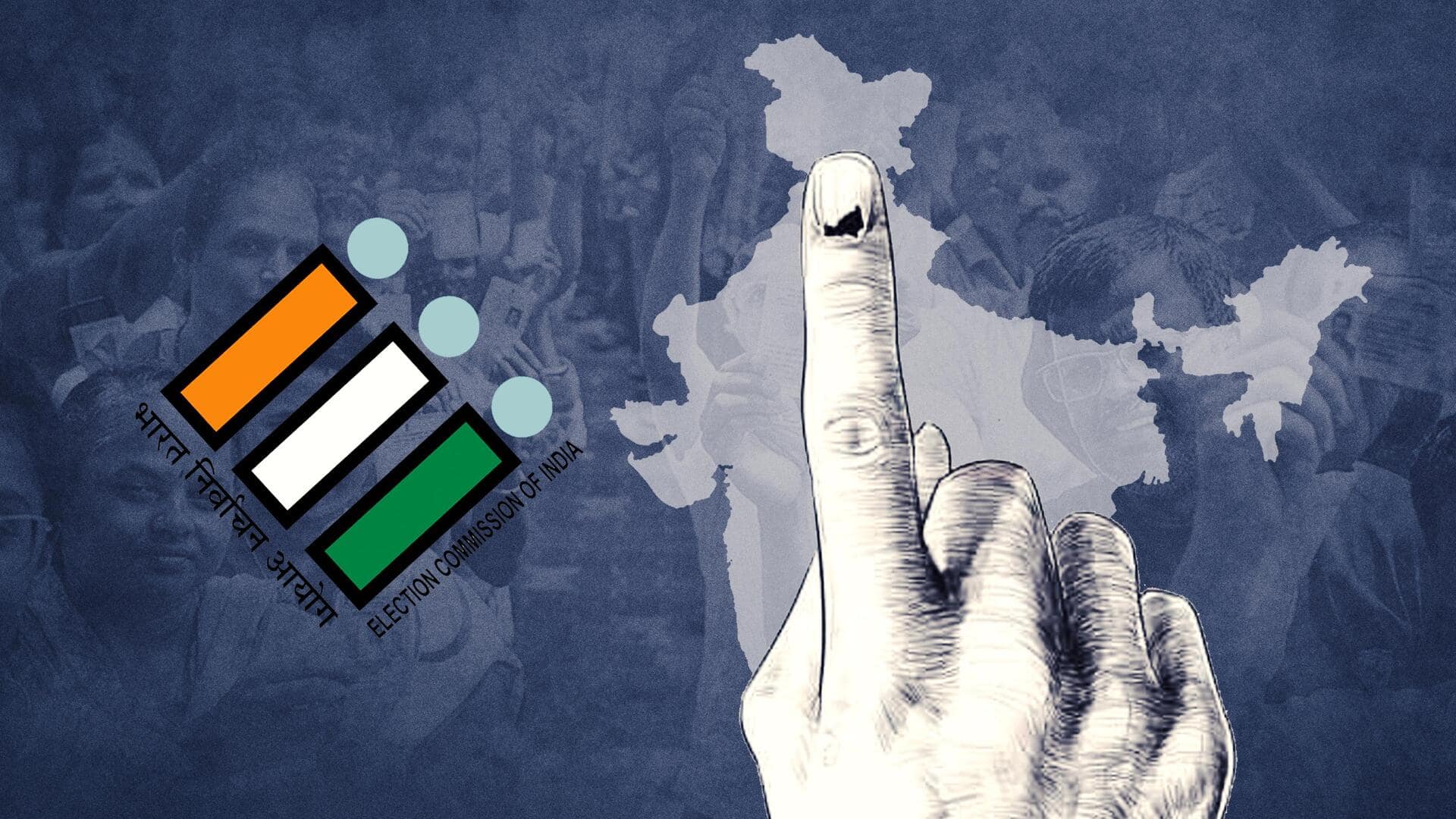
6 weeks, 96.9 crore voters: India's 7-phase election explained
What's the story
The first phase of the high-stakes Lok Sabha elections will kick off on Friday.
Given India's vast geography, voting occurs over seven phases across various states, spanning nearly six weeks in total.
This time, India boasts a staggering 96.9 crore eligible voters—around 10% of the world's population.
Among them are 1.8 crore first-time voters.
Here's an overview of the mammoth election exercise set to begin on Friday.
Election logistics
The logistics of India's extensive voting process
To manage the extensive electorate, the Election Commission of India will deploy 1.5 crore people to supervise the elections.
Separately, over 10 lakh electronic voting machines will reportedly be used during the course of the elections.
To reach voters in remote corners, voting machines will be transported by horses and elephants, while there exist some polling booths that are only accessible by boat.
Notably, India has the world's highest polling booth, situated at 4,650 meters in the Himalayas.
Election finances
Financial implications and political dynamics of election
India's elections are among the world's most expensive, with this year's spending expected to hit ₹1.2 trillion ($12 billion), almost twice what was spent in the 2019 elections.
With over 2,600 political parties registered in this election, the contest at the Centre is between Prime Minister Narendra Modi's National Democratic Alliance government and the Congress-led opposition bloc.
To recall, 27 opposition parties came together last year to form a united front to oust PM Modi's Bharatiya Janata Party in 2024.
BJP
PM Modi seeking a third term
In this year's general elections, PM Modi's government is seeking a third term.
In the current Lok Sabha, the BJP alone has 303 seats. With the support of its coalition partners, the NDA's seat share is 352 in the 543-seat parliament.
Several BJP leaders have claimed that the NDA coalition will surpass 400 seats this time.
Despite predictions of a win, uncertainty looms over whether the BJP will be able to maintain the same overwhelming parliamentary majority it has enjoyed.
Opposition's claims
Alleged crackdown of opposition ahead of polls
Controversies have surfaced ahead of the elections, with several opposition parties accusing the Modi government of misusing federal agencies to undermine them.
The alleged government crackdown intensified with the arrest of Delhi Chief Minister Arvind Kejriwal in a money laundering case in March.
Kejriwal is on judicial remand till April 23.
Separately, the Congress had alleged that the Income Tax Department froze the party's accounts, hampering its campaign efforts.
Poll plank
Key issues in this election
The BJP has focused on religion, nationalism, and what they term "Modi ki guarantee," with the prime minister positioned at the forefront, pledging economic growth, infrastructure development, and poverty alleviation.
Meanwhile, the opposition aims to capitalize on issues such as job scarcity, inflation, and allegations of corrupt "crony capitalism" under Modi's administration.
Additionally, the Congress manifesto has promised a nationwide caste census and proposed a law for civil partnerships for LGBTQ+ couples.